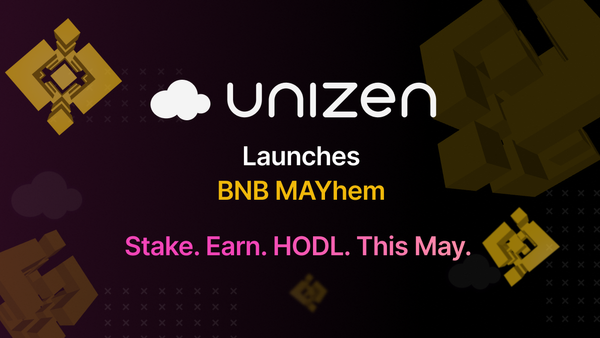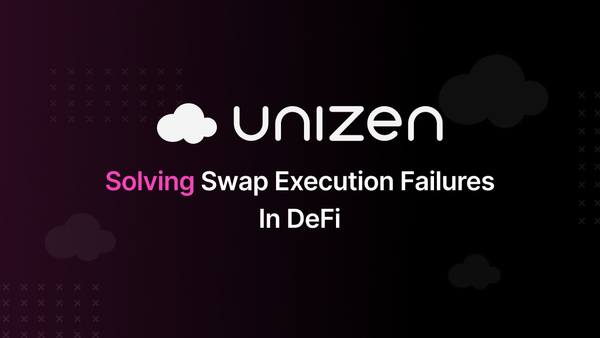Advantages and Disadvantages of Decentralization: A Comprehensive Guide
Impact and Challenges of Decentralization

Introduction
Decentralization is a concept once known only to people interested in governance and technology. Nonetheless, it has become part of our daily lives. It is largely responsible for shaping many aspects of our society – from how financial systems are managed using blockchain technology to how power structures are governed.
In its simplest explanation, decentralization involves moving power, authority, and decision-making abilities away from central bodies towards individuals or groups known as nodes. Consequently, such change has raised an argument with some hailing it while others deeply worried about the difficulties that might arise as a result of over-fragmentation.
In this article, we will, therefore, look at decentralization from all angles. We examine the positive and negative aspects in various areas. By studying real-life instances and complex situations within decentralized systems, we hope to gain a better understanding of the changes brought about by decentralization and what they mean for our governance and economics, not only now but also in the future.
What is Decentralization?
Decentralization is about power, authority, and decision-making moving from central authorities to distributed networks or people. It basically signifies the spreading of control in order to enable more liberty and participation at different levels.
Decentralization can come in different forms. For instance; political decentralization, where power is delegated to regional or local governments, or technological decentralization, where systems work without a central authority.
This principle of subsidiarity aims to distribute control and encourage collaborative efforts between varied stakeholders, with the aim of enhancing effectiveness, creativity, adaptability, and empowerment.
What are the Advantages and Disadvantages of Decentralization?
Advantages of Decentralization
1. Increased Efficiency
Decentralization might speed up decision-making and resource distribution, facilitating a more efficient workflow and producing better outcomes. When decision power is spread across lower levels of an organization or network, it reduces bureaucratic obstacles.
This allows quick answers to problems and chances for growth. For instance, if we look at the business world, decentralized decision-making lets employees on the front line handle customer needs quickly and design specific solutions without requiring approval from above.
A good example here is a company like Zappos, which adopted a decentralized system with no job titles, no managers, and no hierarchy. This gives their customer service representatives the power to solve problems by themselves, resulting in faster resolution times and more content customers.
Additionally, decentralized resource allocation helps to ensure that resources are used efficiently. This is because the people who make decisions about how to use these resources have direct knowledge of local needs and conditions at different levels.
Decisions made in a localized manner let organizations distribute their available resources where they are most required, improving efficiency and reducing waste.
2. Security and Resilience
Decentralized systems have the natural advantage of being robust against failures and attacks because they distribute control around, removing single points of failure. In centralized systems, if the central authority is disrupted or compromised, it can lead to serious problems.
This situation might result in system-wide breakdowns or loss of data. However, when decision-making authority and data are distributed across many nodes or participants, as found in decentralized systems, their resistance to failures and attacks becomes stronger.
There are many places where we can see decentralized resilience, such as in cybersecurity and governance. In cybersecurity, data and communication are stored in a decentralized manner using blockchain-based systems. That provides more security by getting rid of weak central points.
For example, networks based on blockchain, like Bitcoin and Ethereum, use cryptography and consensus algorithms to secure transactions. Furthermore, decentralized governance models give communities the power to make decisions together and govern themselves independently.
This lessens the need for central authorities while promoting a more precise way of doing things. For example, decentralized organizations (DAOs) govern resources and decide matters through transparent processes driven by the community.
3. Accountability
Decentralization also makes people accountable by sharing decision-making responsibilities among different parties. In governance models where decentralization is the focus, participants can directly voice their opinions regarding organizational or community matters.
For instance, in decentralized autonomous organizations (DAOs), transparency is enforced by public blockchain records that anyone can examine. This allows stakeholders to scrutinize transactions and keep decision-makers responsible.
Also, decentralized governance platforms such as Aragon help with transparent decision-making because they offer instruments for voting, proposals on governance changes, or resolving disputes. This ensures responsibility within decentralized communities too.
4. Engagement
Decentralization supports more involvement because it gives people the power to participate in decision-making and community actions. In systems with central control, decisions are taken by particular people or groups.
On the other hand, decentralized platforms give everyone the chance to express their views, suggest modifications, and vote on matters related to governance. This open method encourages a feeling of ownership and belonging among decentralized communities leading to more involvement and participation.
For example, open-source projects such as Linux rely on community participation, with developers from around the globe working together to enhance software quality and features.
5. Innovation and Creativity
Decentralization helps in the growth of new ideas and original thinking. That's because it gives power to various interested parties, letting them participate in the process of decision-making, experiment with fresh methods, and question existing ideas.
In centralized systems, few people have decision-making authority, which restricts the perspectives and ideas taken into account when making decisions. On the other hand, decentralization disperses decision-making authority among many individuals. This feature guarantees a broader range of voices being heard and thoughts explored.
Many examples of decentralized innovation can be seen in all industries. For instance, within the technology sector, we have open-source software development. Contributors from different parts of the globe work together to enhance and polish codebases like Linux and Mozilla Firefox.
Encouraging a distributed method for software development makes it easier to experiment with various ideas quickly while sharing knowledge freely. Also, decentralized finance (DeFi) platforms created using blockchain technology are changing traditional financial services.
They provide new ways to lend, borrow, and manage assets without the need for middlemen. Compound Finance and Uniswap projects allow users to join decentralized lending pools and trade digital assets directly, promoting financial innovation.
6. Empowerment and Global Inclusivity
Decentralization supports people and groups by making resources, opportunities, and decision processes more democratic. In a centralized system, the power and control usually gather in the hands of a few who are privileged. This often results in disparities and exclusion.
However, decentralization redistributes the authority for decisions and resources, which lets more people participate or represent themselves better. One can see examples of decentralized power and inclusion in grassroots movements and efforts using decentralized technologies to encourage social change.
For example, the movement called #MeToo began on social media platforms. This movement gave strength to those who have survived sexual harassment or assault by allowing them to share their stories and demand answers from both wrongdoers as well as establishments involved in these actions.
Social media sites such as Twitter and Facebook offered a decentralized way for people to connect, plan things together and make their voices heard. It started off a worldwide movement for gender fairness and fairness in general, known as MeToo.
Additionally, decentralized finance (DeFi) platforms are making financial services more accessible by offering alternative banking options to communities and groups who have been disadvantaged.
Initiatives such as MakerDAO allow users to get loans, make money from interest rates, and be a part of the worldwide economy without needing the usual bank facilities. This gives people the ability to manage their own financial situations.
7. Flexibility and Adaptability
Decentralized systems show more flexibility and tend to adjust better in response to changes and uncertainty. This helps organizations or communities adapt better within their environments. Centralized systems usually follow a top-down hierarchy when it comes to decision-making, making it harder for the system to adjust when circumstances change.
On the other hand, decentralization spreads decision-making power across different parts of an entity, which promotes experimentation--aiding entities to innovate and iterate quickly under varying situations. That can be seen in many areas of our lives, including how people react to disasters and the way cities are planned out.
In business, decentralization in organizational structures gives power to workers for self-organization and making decisions on their own. This promotes agility and innovation. Companies like Spotify have adopted decentralized management methods, letting teams adjust swiftly to market shifts and customer demands.
Disadvantages of Decentralization
Despite the above benefits, decentralization also comes with its own set of drawbacks. Some of the issues that peg this type of system include:
1. Coordination Challenges
When it comes to coordination, decentralization doesn't make it easy. Here, you might run into alignment and consistency challenges. That's because without a centralized authority, ensuring harmony and uniformity among various levels can be a tad bit difficult.
The number of participants in governance also leads to prolonged decision-making processes due to the need for coordination and consensus. Typically, decentralization highly depends on consensus, which means nothing can be done until the participants within the network agree. That leads us to the next disadvantage.
2. Decision-making Delays
With decentralization, you are likely to experience delays in decision-making. This system disperses leadership authority across different levels of your organization. Even though that might be good for security and unbiased governance, reaching a consensus or obtaining approval for critical decisions can be time-consuming.
With that in mind, everyone in the governance role may feel entitled to give their opinion, leading to prolonged discussions, debates, and even power struggles. These delays and struggles will negatively impact responsiveness, especially in fast-paced environments.
As such, opportunities may be missed, leading to the erosion of competitive advantages as the company waits for consensus or approval. Simply put, such delays could massively lead to losses in your company if not properly managed.
3. Inconsistent Standards
In a decentralized organization, each unit has its own set of standards, depending on the leadership positions within it. That gives each unit the freedom to design their workspace as they see fit. That, in most times, sparks creativity and innovation, allowing each team a chance to tailor their practices and standards according to their goals and specific needs.
However, this type of autonomy also comes with a catch: inconsistent standards within the same organization. Although such diversity may seem exciting, it can also lead to confusion and inefficiency.
The lack of centralized oversight means that every team will likely develop its own set of standards and practices, resulting in widespread inconsistency throughout the organization. Such variance will result in disparities in the quality of work produced by different teams. That could undermine the overall organization's reputation for excellence.
And from a regulatory perspective, this could mean trouble. Some organizations have regulatory and compliance requirements that they must adhere to. And if in case one unit interprets these regulations differently, it could mean the company runs the risk of regulatory non-compliance and legal consequences.
4. Risk of Fragmentation
Granted, decentralization brings about diverse opinions, which can be a good thing since it fosters fresh ideas and perspectives. But at the same time, this system risks your corporation's fragmentation.
That means different parts of your organization gain substantial freedom, which could lead them to act on their own or even differently. This fragmentation can result in each unit working along different lines. Such divisions can cause problems because it weakens the robust bond that holds the organization together.
On one hand, such autonomy in different decentralized units can ensure each individual department gets a chance to voice their needs and concerns. That allows them to work efficiently without any hurdles. On the other hand, decisions might be made without the specific unit considering how it might affect the whole organization.
After a while, each department might choose to act utterly indifferent from the whole enterprise, posing governance and management issues to the company.
5. Increased Cost
Typically, a decentralization setup is more expensive than a centralized one. Managing several smaller units over a big one can be tedious and costly. Each unit requires a different set of resources, technology, and infrastructure.
Decentralization leads to redundancy, especially in resource allocation. Without central coordination, each unit may independently invest in similar resources such as equipment, software licenses, and specialized personnel. That leads to unnecessary duplication and wastage of financial resources.
More importantly, decentralized units can easily make suboptimal purchases without the centralized authority to oversee purchases. Due to the absence of a centralized procurement strategy, these individual entities might lack the leverage to negotiate with suppliers.
Aside from that, decentralized systems are more likely to incur a higher administrative cost. Technically speaking, multiple decision units dispersed across the organization will lead to higher employee salary costs for the company.
6. Communication Breakdown
When it comes to communication, it sometimes feels like a maze in a decentralized system. Often, each team operates independently, which means they are more likely to have their specific set of communication tools and methods.
As much as decentralization offers flexibility, you now have to create a customized communication channel that can accommodate each team and its unique preferences. On the other hand, a centralized communication framework is far less troublesome since everyone has to adapt to the already available communication channel despite their preferences.
Without a proper centralized communication framework, your message might encounter roadblocks. Therefore, essential updates or insights could be lost in the shuffle, leading to delays and breakdowns in communication.
The consequences of this breakdown will be felt throughout the organization. Some members could be kept in the dark without timely access to important messages. That will additionally slow down the company's progress.
7. Difficulties with Identity Verification
Decentralized systems face a strong challenge in finding the right equilibrium between user privacy and following regulations, especially in the area of identity verification. Regular ways to verify identity often clash with decentralization principles, creating user anonymity and privacy problems.
It is very important to achieve a good balance between privacy, security, and meeting rules in order to gain trust and compliance within decentralized ecosystems. Inventive solutions like zero-knowledge proofs and decentralized identity frameworks are potential ways to tackle these issues.
If they can make strong identity solutions that follow user privacy but also meet rules, it might improve trust, increase usage, and boost important changes in the digital world through decentralization projects.
8. Crime
The basic nature of decentralization can make it difficult for law enforcement and regulators to fight against crime or enforce laws. Even though decentralization provides many benefits, like more freedom and secrecy, it allows illegal actions to flourish in certain decentralized environments.
For instance, decentralized systems are being used to facilitate money laundering, fraud, and other financial crimes. Cryptocurrencies, running on decentralized blockchain networks, have been taken advantage of by criminals to wash their illicit money and conduct illegal dealings. This happens because these currencies are less identifiable and lack centralized monitoring.
In addition, decentralized communication platforms and encrypted messaging services can be used by criminal groups for planning and organizing illegal activities like drug dealing, human smuggling, or cybercrimes. Since there is no one to oversee activities, it's harder for law enforcement agencies to keep track of their communications and collect proof.
We have also seen cases where DAOs and other decentralized governance structures are unintentionally used to support fraudulent plans and scams. That's because the community usually governs the decision-making process. Without centralized authority to oversee and regulate these entities, investors and participants may fall victim to fraudulent projects or Ponzi schemes operating within the ecosystem.
9. Administrative Difficulties and Large Operational Costs
The complexity and overhead costs associated with decentralized systems pose significant challenges for organizations and individuals alike. Unlike centralized counterparts, decentralized systems require meticulous management and maintenance, which takes up a lot of resources, expertise, and effort.
It requires managing many interconnected nodes, which, in most cases, could be spread out all over the world. Keep in mind that each node needs to be kept, improved, and synchronized with others to maintain the network's trustworthiness and smooth functioning. This coordination usually needs continuous communication and teamwork.
The extra complexity comes from the protocols that manage decentralized systems. They set up the rules and procedures for interaction and agreement among participants in a network. To make sure everyone follows these protocols, there must be ongoing monitoring to address any differences or clashes happening within the system.
The intricacy and extra costs involved can create large operational costs and administrative difficulties for organizations or people. Generally, there's much more expertise, coordination, and commitment needed to keep up a decentralized network in order to handle the challenges that come with it and make the best use of its power.
Conclusion
As we’ve seen from this article, decentralization has many pros. It increases efficiency, fosters innovation and resilience, empowers everyone, and supports inclusivity. That's simply because when power is spread out in decision-making, and we get input from different parties, the system becomes more lively and fair.
But at the same time, we cannot ignore the challenges that come with decentralization. For instance, difficulties with coordinating activities, accountability, and management of regulation across various jurisdictions. In order to preserve the benefits of decentralization, we need to handle the challenges more thoughtfully,
Despite its shortcomings, decentralization continues to push for significant change in many areas. It empowers individuals and groups, fosters new ideas, and transforms how we interact, transact, and govern ourselves. Accepting the concepts of decentralization and overcoming its obstacles will be critical for realizing all of its benefits and building a more comprehensive and robust future.



